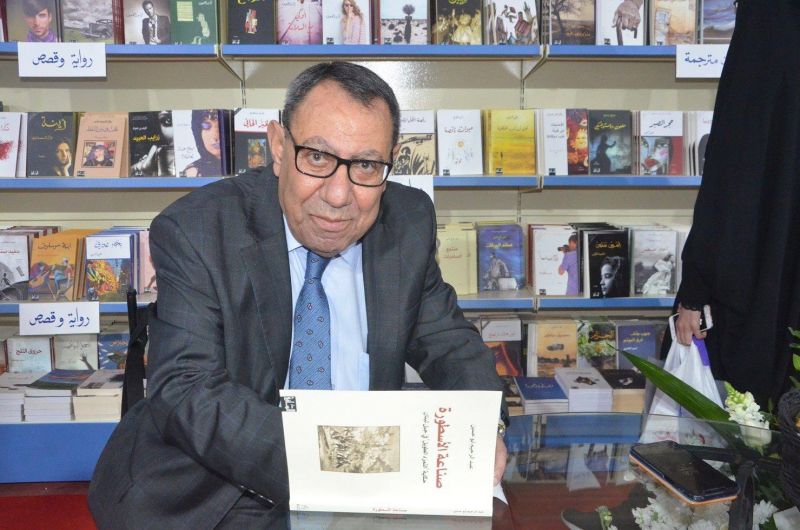
Abdulrahim Abu-Husayn at a book signing event in 2018. (Credit: Abu-Husayn's Facebook page)
BEIRUT — Abdulrahim Abu-Husayn, Ottoman historian and Professor of History at the American University of Beirut, passed away Thursday night. He was 71.
Born in the Palestinian village of Nuba in 1951, Abu-Husayn began his academic journey at AUB. His undergraduate student experience coincided with the start of the Lebanese Civil War in 1975. Forty-odd years later he informed his students that he was around their age at AUB on that fateful day of April 13th.
He completed a master’s degree in Anthropology in 1978 and a PhD in History in 1982, under the tutelage of famed Lebanese historian Kamal Salibi. He later joined AUB’s Department of History and Archaeology and rose to the rank of professor. Abu-Husayn was among those who helped AUB stay afloat during the most challenging years of the civil war, culminating in the bombing of Collage Hall, where his office was housed.
Abu-Husayn established himself as an authority in the field of Ottoman studies and authored and edited several books in different languages, many translated into Arabic and Turkish. The most recent, a lexical and toponymical survey of Beth Qaṭraye, a region in the Arabian peninsula, was published in 2021.
In the wake of the 9/11 attacks and the Islamophobia it engendered, AUB sent Abu-Husayn to speak at American universities to better inform Americans about Islam and the Middle East.
In 2012, he founded and led AUB’s Center for Arts and Humanities through a grant from the Andrew Mellon Foundation.
In his almost 40 years of service, he mentored and advised countless undergraduate, masters, and PhD students. Naila Kaidbey, an AUB history lecturer, mourned his loss.“I have known him as a colleague and friend since 1978,” she told L’Orient Today. “His death was shocking and very sad.”
In a statement released to the public Friday, AUB said Abu-Husayn leaves behind “students and extended family, who are dispersed worldwide yet joining together in expressing deep sorrow at the loss of a treasured source of knowledge.”
Abu-Husayn is survived by his son Tarek.